Latest News
Florida Senate Democrats Have a Plan to Provide Direct Relief to Floridians with American Rescue Plan Funding
In an effort to maximize the public benefit from the $10.23 billion in economic aid Florida is expecting to receive under President Biden’s American Rescue Plan Act, the Florida Senate Democratic Caucus has released a comprehensive proposal for providing direct relief to the people of Florida through a series of grants and investments.
“Thanks to President Biden and Congress, we have a unique opportunity to break away from the corporate focused trickle down economic policies that don’t really trickle down to hard working Floridians,” said Senate Democratic Leader Gary Farmer (D-Lighthouse Point). “By steering the money directly to the people, our plan boosts investments that offer real returns to communities and our state, spurs the economy into robust recovery by providing access to affordable and quality health care for over a million Floridians, creating jobs that pay good wages with good benefits, and directs aid to those who have borne some of the highest costs during this pandemic but remain largely forgotten.”
Better funding for Florida’s struggling public education is a key component of the Senate Democrats’ plan. “Right now Republicans in the state legislature are preventing much needed education funds from the American Rescue Plan from reaching local school districts who are facing extreme budget shortfalls,” noted Senator Janet Cruz (D-Tampa). “With this plan for using American Rescue Plan funds, we could instead get funding directly to the schools who need it the most.”
“This comprehensive plan ensures that the American Rescue Plan funding that was allocated to the state legislature will actually reach hardworking Floridians and will not just be allocated to tax cuts for corporations and special interest groups,” added Senator Bobby Powell (D-West Palm Beach).
Highlights of the plan:
Medicaid Expansion Implementation — $520 Million
The American Rescue Plan Act relieves states of the initial cost sharing burden associated with expanding Medicaid. Senate Democrats are calling for Florida to take advantage of this provision by immediately expanding the program to provide health care coverage for up to 1.5 million Floridians. While the cost-savings associated with Medicaid expansion will result in more available revenue for the state long-term, these funds will cover any up-front costs associated with the expansion of the program.
Rent Relief and Eviction Protection — $3.3 Billion
Supplements rent assistance already available through federal COVID-19 relief programs. These funds will provide up to $6,252 per household to cover unpaid rent. This program brings the total funds available to a level that would ensure the ability of struggling Floridians to cover the average cost for rent for the entire duration of the pandemic thus far.
Landlord Assistance and Late Fee Elimination — $2.58 Billion
Provides relief to tenants facing late fees and to landlords who are struggling to keep up with maintenance and upkeep costs as a result of the pandemic. Funds will be granted to landlords of properties who have not received rent payments as a result of the pandemic. The funding will be provided after a landlord provides information documenting upkeep costs, returns any late fees collected during the pandemic, and removes any pending or future late fees until the state of emergency is lifted. Funds provided shall not exceed 40% of the total rent owed on the property.
Affordable Housing (Sadowski) Protection — $670 Million
This appropriation would prevent the sweeping of the Sadowski Affordable Housing Trust Fund by covering the programs currently slated to be allocated from its coffers. These funds would cover matches and revolving loans for low-income and frontline communities to replace old sewer lines, septic-to-sewer conversions, enhanced water quality monitoring, and to bring wastewater treatment plants up to advanced water treatment standards.
Relief for Hospitality and Tourism Workers — $1 Billion
Provides a one-time $1,000 grant to individuals in the hospitality and tourism industry who lost employment as a result of the pandemic. After 60 days eligibility would expand to individuals who were not let go but who experienced a reduction of hours during the pandemic.
Investing in Future Teachers —$50 Million
Provides a $10,000 grant to teaching students on the condition that they teach for a minimum of 3 years in the State of Florida. This would cover up to 5,000 new teachers in Florida.
School Infrastructure Funding — $400 Million
Provides funds to repair and/or replace buildings, roofs, sidewalks and fences, especially in low-income areas.
Florida Small Business COVID-19 Relief Grant Program — $175 Million
Provides one-time grants of up to $25,000 to Florida’s small businesses to cover losses suffered as a result of the COVID-19 pandemic.
Small Business Website Grants — $10 Million
Grants up to $2,500 to small businesses in Florida for the purpose of establishing business websites.
—
While the American Rescue Plan has been seen as a lifeline to Floridians and local governments that are still struggling to recover from the economic ravages of the pandemic, the delivery of the aid has been contentious at the state level. “With the American Rescue Plan funding we have the opportunity to really help Floridians who are struggling from the COVID 19 pandemic and reinvigorate our economy,” noted Senator Annette Taddeo (D-Miami) “But, we have to be smart about how we invest— that is why the Senate Democrats have released a clear blueprint for using this money in an effective and efficient way.”


